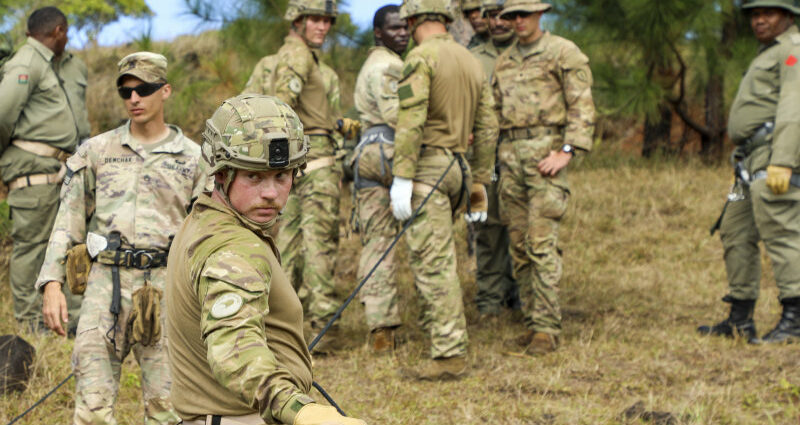Save articles for later
Add articles to your saved list and come back to them any time.
Wellington: New Zealand needs to spend more on its military and strengthen ties with countries in the Indo-Pacific to help meet the challenges of great power rivalry and climate change, the government said on Friday amid an ongoing defence review.
Launching the country’s first national security strategy, Defence Minister Andrew Little said New Zealand faced more geo-strategic challenges than it had in decades.
Defence Minister Andrew Little plans to boost NZ’s capabilities as tensions rise in the Pacific, due in part to a military build-up by China. Credit: AP
The inaugural security strategy underscores how China’s rise is upending old norms and behaviours, even 9000 kilometres away in Wellington.
“An increasingly powerful China is using all its instruments of national power in ways that can pose challenges to existing international rules and norms,” read one policy document.
Chinese state-sponsored actors had exploited cyber vulnerabilities in ways that undermined New Zealand’s security, said another document that did not provide further details.
New Zealand’s military needed more investment, equipment and training to be ready for armed conflict and disaster relief operations, according to a policy document published alongside the strategy. A Defence white paper and Defence Capability report will be released in 2024.
A New Zealand soldier during a joint training exercise with the US, Britain and Australia in Fiji last year.Credit: US Navy/AP
Little said New Zealand spent roughly 1 per cent of GDP on defence and that this would need to increase. He declined to say how big the increase would be ahead of the report.
He highlighted the potential risks from climate change and great power competition in a region “which, up until recently, we thought was protected by its remoteness”.
“The changes in the domestic and international security environment mean our response and preparedness must change too,” Little said. “We need the strategies and the capabilities to respond.”
The wide-ranging review also prioritised deeper defence ties with its only military ally, Australia, and closer links to other partners in the region, including the US, whose presence in the Indo-Pacific was “critical” for New Zealand’s security.
Long protective of its independence, New Zealand banned nuclear-armed and nuclear-powered ships from its waters in 1984.
The review, initially scheduled for completion by mid-2024, comes as the country’s defence forces are stretched thin despite significant investments by the Labour government to upgrade parts of its Vietnam war-era aircraft fleet and boost military salaries to improve retention.
Three of the Navy’s nine ships remain idle because of staff shortages, and plans to build a ship suitable for patrolling in the harsh conditions of the Southern Ocean are suspended.
Defence Force chief Kevin Short said the defence force needed to give the government options to protect and promote the international rules-based system that guarantees the country stability, security and prosperity.
Reuters
Most Viewed in World
From our partners
Source: Read Full Article
-
‘Abrasive’ Meghan Markle ‘threw cup of tea into air’ during furious royal row
-
Officer drew gun as he approached Tyre Nichols, report finds – The Denver Post
-
Putin’s announcement leads to a sharp rise in flights leaving Moscow
-
Heathrow security strikes called off as workers accept new pay offer
-
PM asks Home Secretary to sign biggest ever migrant deal with France



